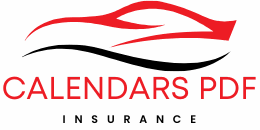When was the last time you thought about your insurance policies beyond signing the paperwork or making a payment? For most people, insurance is something you “set and forget.” However, this approach can lead to costly mistakes that impact your finances down the road.
Optimizing your insurance policies doesn’t just mean saving money; it also means ensuring you’re adequately protected in case of an emergency. Whether you’re insuring your home, car, or health, avoiding common pitfalls can lead to better coverage and lower premiums.
Below, we’ll uncover the most frequent mistakes people make with their insurance and, most importantly, how you can fix them.
Mistake 1: Not Comparing Quotes
Shopping for insurance often feels overwhelming, which is why many people settle for the first quote they receive. While loyalty to a single provider might seem convenient, it can be a costly habit. Insurance rates vary widely between companies, even for identical coverage.
How to Fix This:
Make comparison shopping a habit. Use online platforms like Policygenius or NerdWallet to easily compare rates from multiple insurers. Reach out to independent insurance agents who can provide quotes from various providers. You might be surprised at how much you can save simply by exploring your options.
Pro Tip: Insurers often offer discounts for bundling policies (e.g., combining home and auto insurance). Don’t forget to ask!
Mistake 2: Underinsuring Your Home or Auto
Cost-conscious decisions often lead homeowners and drivers to purchase minimal coverage. While this might lower your premiums, it can put you at significant financial risk. For instance, if your home isn’t insured for its full replacement value, you could end up paying out of pocket to rebuild after damage. Similarly, inadequate auto insurance could leave you financially strapped after an accident.
How to Fix This:
- For homeowners, insure your property for its replacement cost, not its market value. The replacement cost refers to the expense of rebuilding your home from scratch, which might be higher than what your house would sell for.
- For auto policies, purchase more than just the state’s minimum liability requirements. Coverage for collisions, comprehensive damage, and uninsured motorists can protect you in worst-case scenarios.
- Pro Tip: Revisit your coverage limits every few years to ensure they align with inflation and rising construction or repair costs.
Mistake 3: Ignoring Discounts
Insurance companies don’t always advertise every discount they offer. You could qualify for deals you aren’t taking advantage of, leaving money on the table month after month.
Examples include discounts for good driving records, home security systems, low annual mileage, or even being part of a professional organization.
How to Fix This:
Call your insurance provider and ask for a full list of available discounts. Mention any applicable life circumstances, such as being a recent graduate, a senior citizen, or a safe driver. Also, look into telematics programs where providers track your driving behavior to potentially lower your premiums based on safe habits.
Pro Tip: Discounts often stack. Don’t hesitate to combine eligible incentives to maximize your savings.
Mistake 4: Not Reviewing Your Policy Annually
Life changes quickly, and so do your insurance needs. If you haven’t reviewed your policies in a while, there’s a chance you’re paying for coverage you don’t need or missing updates relevant to new circumstances. For instance, selling a car, paying off a mortgage, or adding a new family member could all warrant coverage adjustments.
How to Fix This:
Schedule an annual “insurance check-up.” Review each policy to ensure coverage aligns with your current assets, needs, and liabilities. During this review, look for unnecessary add-ons you might be paying for and see if you can consolidate policies for savings.
Pro Tip: Make this review process easier by setting a calendar reminder or combining it with other yearly tasks, like tax preparation.
Mistake 5: Filing Small Claims
Filing an insurance claim for minor damages might seem like the right thing to do, but frequent claims can raise your premiums over time. Many insurance providers offer a “claims-free discount” that rewards you for not reporting incidents. Filing multiple small claims could negate those savings and make you a financially riskier customer in their eyes.
How to Fix This:
Reserve filing claims for significant damages that exceed your deductible by a substantial amount. For smaller issues, consider paying out of pocket.
Pro Tip: To avoid stress about larger claims, set up a small emergency fund to cover minor expenses like home repairs or car dents without needing to involve your insurer.
Your Next Steps to Save on Insurance
Optimizing your insurance policies starts with being proactive. By avoiding the five costly mistakes outlined above, you can reduce your premiums, improve your coverage, and protect what matters most without wasting money.
Start by comparing quotes, ensuring your coverage is adequate, and asking about discounts. Remember to schedule an annual review of your policies so your insurance evolves with your lifestyle. Finally, weigh the pros and cons before filing claims to avoid unnecessary premium hikes.
Better insurance decisions don’t just save money; they offer peace of mind. If you’re ready to take the next step, start by reviewing your current policies today.




